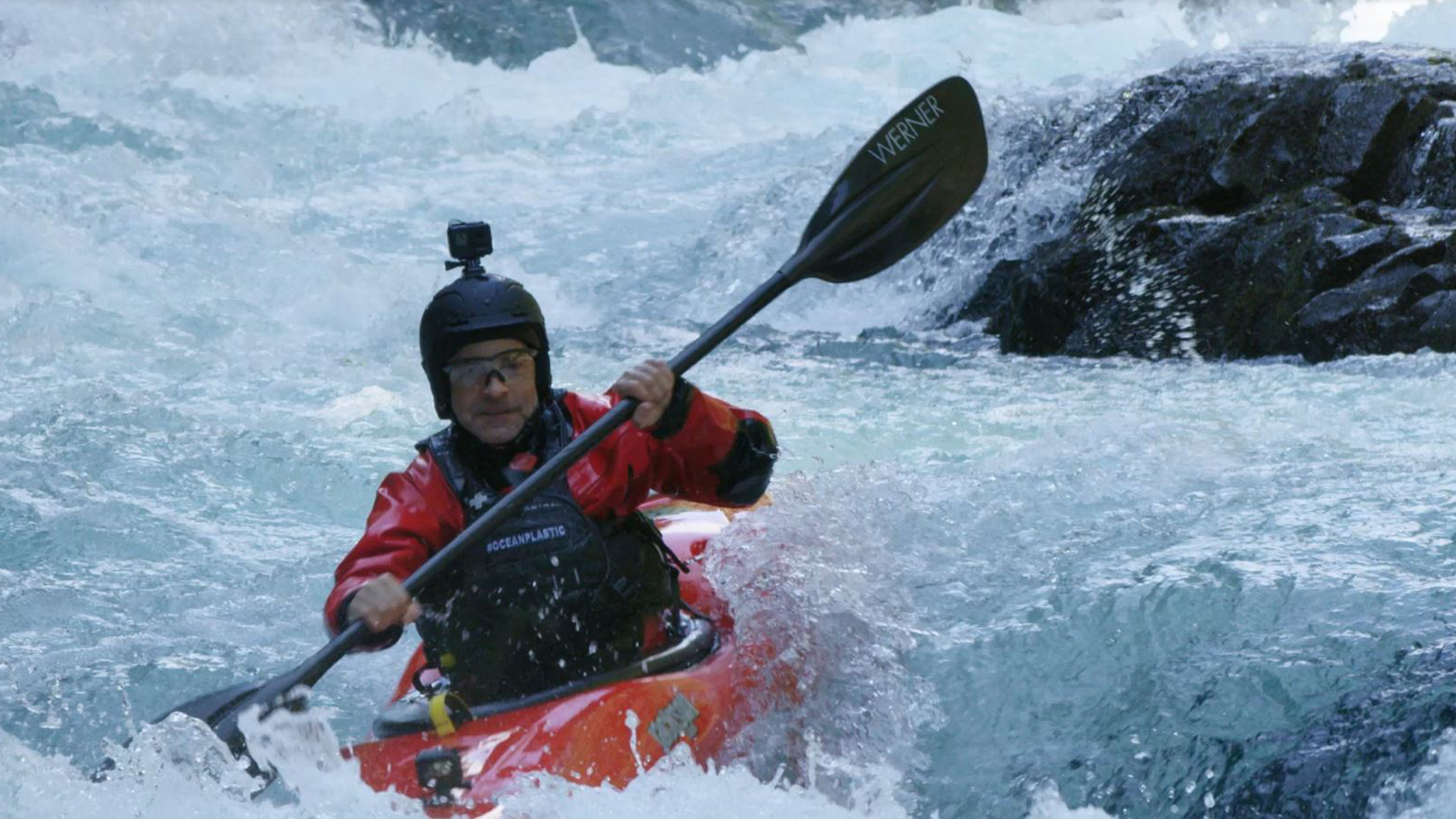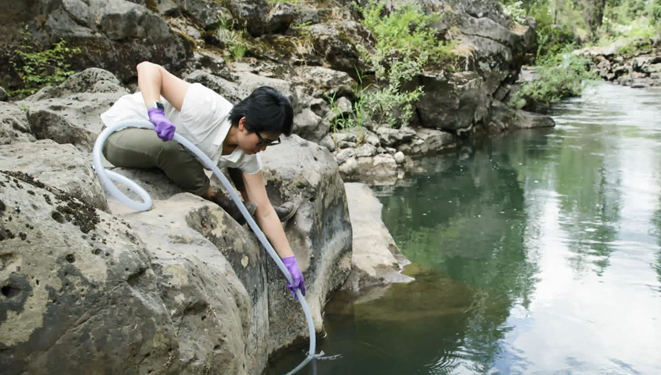
RACINE, Wis., July 22, 2019 – SC Johnson today announced evidence of microplastics in a federally protected waterway in south central Washington, raising broader concerns that even preserved environments are susceptible to the plastic waste crisis. In a study funded by SC Johnson in conjunction with the Ocean Wise Conservation Association (Ocean Wise), findings reveal the White Salmon River contains small quantities of microplastics, small microscopic pieces of plastic that are turning up in waterways from Monterey Bay to the deep ocean.
“I’ve always been intensely connected to nature, which is why I’m disappointed that even small quantities of microplastics were found in this pristine river,” said Fisk Johnson, Chairman and CEO of SC Johnson, during a recent visit to the White Salmon River. “The fact that microplastics were found here speaks to the need for all of us to work hard to tackle this critical issue.”
Ocean Wise examined 1,000 liters of near-surface water at one location of the river. A total of three microplastics were discovered in one cubic meter of a single sample, which included one polyethylene film and two polyethylene fragments. The small quantity of microplastics found is typical of that seen in remote oceans or unpolluted coastal areas, while surface waters near urbanized areas like British Columbia, Canada, can contain up to 3,200 microplastics per cubic meter, according to Ocean Wise.
“Microplastics can now be found everywhere, highlighting our inadvertent contamination of waterways around the world,” said Dr. Peter S. Ross, Vice-President of Research at Ocean Wise. “The challenge we face is to translate this ‘bad news’ into ‘good news’ by providing meaningful research that identifies these microplastic particles, leads us back to the source, and enables solution-oriented changes.”
Considering the White Salmon River and many similar rivers connect to the Columbia River, the region’s largest waterway emptying into the Pacific Ocean, these findings indicate one of the many ways plastic particles get into to our oceans, but to a far lesser degree than the eight Asian rivers and two African rivers that contribute to the bulk of the problem1.
As a global consumer product company that relies on plastics to package many of its products, SC Johnson is assessing how harmful plastic waste disrupts natural ecosystems and poses a global risk. The company has partnered with Plastic Bank and the Ellen MacArthur Foundation to help reduce the flow of plastics into our oceans. Further efforts to keep environments clean include subjecting product ingredients to strict aquatic toxicity standards, outlined by the company’s rigorous GreenlistTM ingredient selection program.
Microplastics are small pieces of plastic no more than five millimeters in length2 , though they are a growing concern among scientists who are just beginning to comprehend their abundance in our waterways and throughout all levels of marine food webs3 . In fact, an Ocean Wise study found the particles in at least two key species of zooplankton in the northeast Pacific Ocean4 , species at the base of the food chain, indicating possible contamination among larger predators. New research also suggests corals, vulnerable animals facing worldwide decline, may also be heavily impacted by microplastics’ ubiquity.

Ocean Wise taking a sample from the White Salmon River to test for microplastics.
Earlier this year, SC Johnson unveiled a new 100% recycled ocean plastic bottle for its Windex® Vinegar variant – a first for a major home cleaning product. Available in the United States at retailers like Target and Walmart, the bottles are made from plastic waste collected within 30 miles of an ocean or waterway in countries without formal waste-based collection infrastructures. These bottles help SC Johnson and consumers alike strengthen global recycling programs and reduce potentially harmful debris from entering the ocean.
But tackling plastic pollution cannot be solved by a single company alone. That’s why Johnson signed the New Plastics Economy Global Commitment at last year’s Our Ocean Conference in Bali, Indonesia, alongside Dame Ellen MacArthur and a worldwide coalition of businesses and governments. The initiative represents a shared value among world leaders to build and foster a circular economy for plastics, creating a market for them at every stage of their lifecycle. To put these values into action, SC Johnson and the Ellen MacArthur Foundation announced a global partnership in January that now comprises 17 additional organizations – including Intesa Sanpaolo, Danone, Google, H&M, Phillips, Renault, Solvay, Unilever and others – to execute market-leading circular economy initiatives at scale.
Ocean Wise is a not-for-profit organization whose vision is a world in which oceans are healthy and flourishing. www.ocean.org
1Export of Plastic Debris by Rivers into the Sea
2What are microplastics?
3The vertical distribution and biological transport of marine microplastics across the epipelagic and mesopelagic water column
4Ingestion of Microplastics by Zooplankton in the Northeast Pacific Ocean